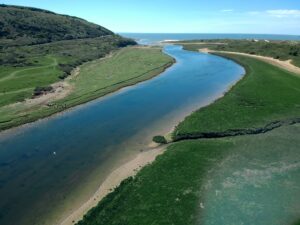Government takes steps to improve waterways following inaction
The government is changing its handling of the UK’s water quality, after the Environmental Audit Committee (EAC) published its recommendations.
In the EAC report, Water quality in rivers, it was suggested that long term investment in the sewerage network needs to be prioritised in the next water industry price review process.
Government ministers and the water industry regulator Ofwat agreed with this idea, which will allow for an overhaul of overloaded Victorian sewage infrastructure and increase the use of nature-based solutions.
The government has also said it will support industry-funded research into exactly what chemicals are present in England’s rivers before they can be properly cleaned up.
Recommendations to improve overflow monitoring to keep track of sewage discharge from combined sewer overflows were also made in the report, which the Environment Agency is taking forward.

However, the government rejected the EAC’s proposal for industry to be required to install volume monitors to see the amount of untreated or partially treated sewage discharged.
Following the EAC report, the Environment Agency is reviewing how self-monitoring of wastewater treatment works by water companies is audited.
Increased funding is also being provided for extra inspectors, but there is a risk they will not have sufficient powers to enforce action against permit breaches and there will still not be enough inspectors for site visits.
Despite these moves, the government rejected EAC recommendations on agricultural pollution, which prevents 40% of UK rivers and bodies of water from achieving good ecological status, due to concerns nutrient neutrality policies could stall housebuilding.
A proposal to ban planning permission for new intensive livestock units in areas with excessive nutrient pollution was also rejected.
The EAC is still awaiting responses from ministers to the consultations on fats, oils, greases, wet wipes and sanitary products, but a recommendation to include voluntary targets to reduce microplastic pollution from textiles was rejected.
Environmental Audit Committee Chairman, Rt Hon Philip Dunne MP, said: ‘Improving water quality in our rivers is not an easy task and will not be solved overnight. In 2021, sewage poured into our waterways over 370,000 times: this is simply unacceptable. But the Government has clearly been listening and Ministers have shown a determination to engage constructively with the Committee’s recommendations.
‘Enforcement of permit conditions is crucial, and the Committee will in due course be examining the capacity of the relevant agencies to deliver effective environmental protection in this area. I look forward to evaluating the further action on effective monitoring of sewage discharges promised at the next update of the Government’s 25 Year Environment Plan.‘This is a critical period for transforming human impact on our waterways and I welcome the way in which the Government is engaging and seeking to put right the indifference of successive previous administrations. The Committee will continue to hold the Government, its arms-length bodies and the water companies to account as they implement these plans to improve the water quality in England’s rivers.’
Photo by Callum Blacoe















